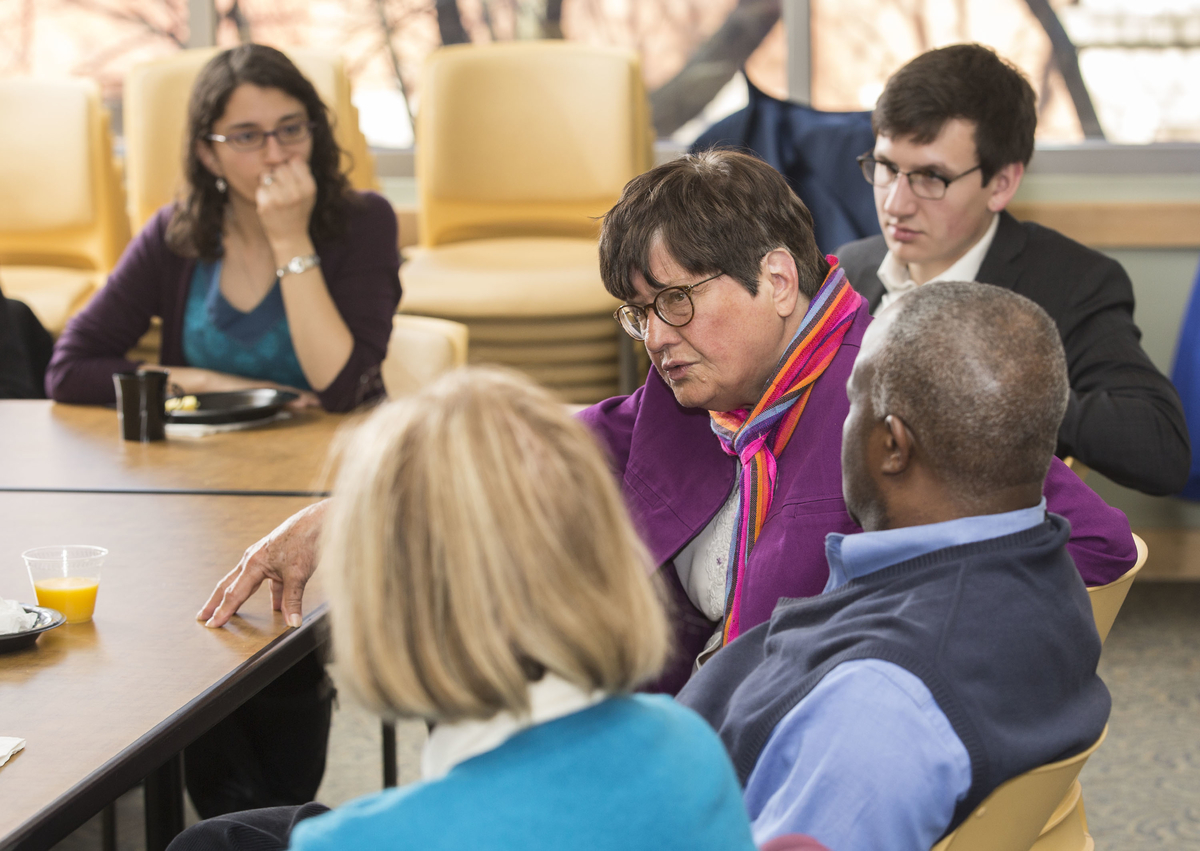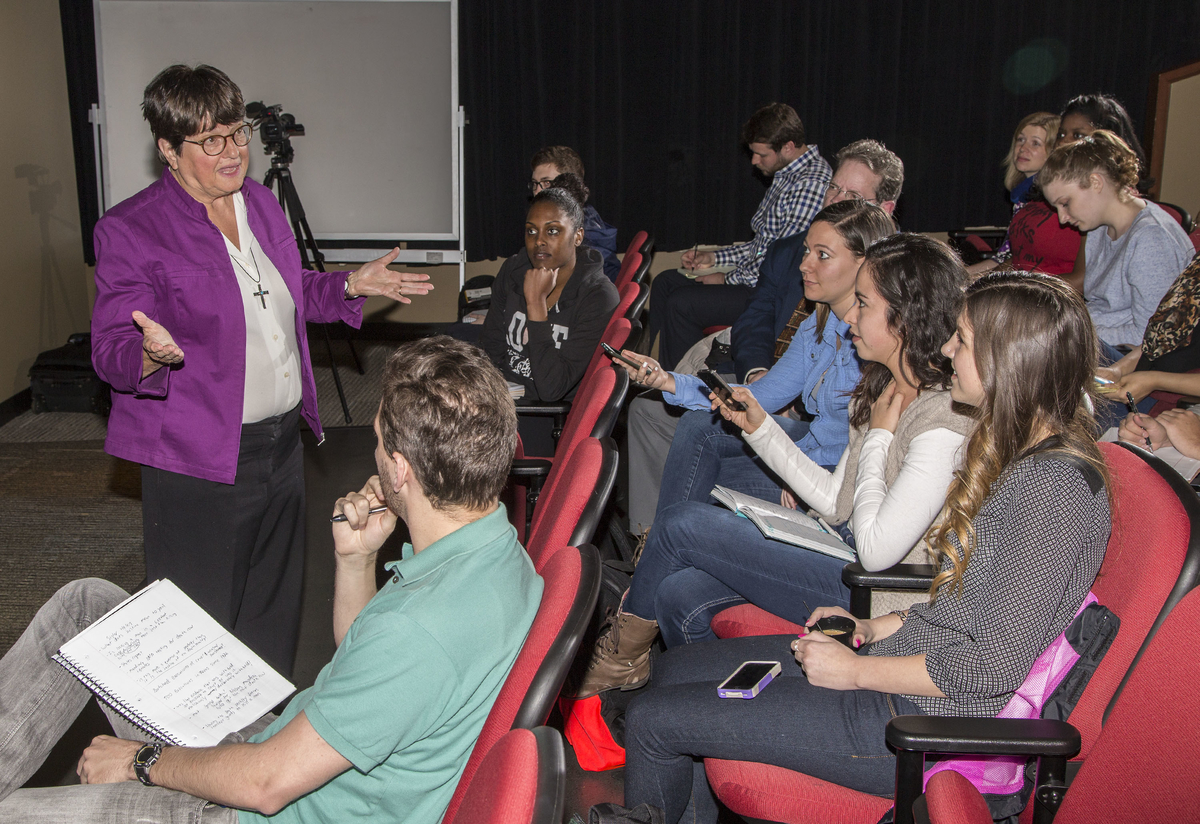 DePaul University/Jamie Moncrief
DePaul University/Jamie MoncriefThe Journal for Social Justice, University Ministry and the Center for Public Interest Law had the honor and privilege of hosting Sister Helen Prejean for a roundtable discussion with students, faculty and alumni.
Sister Helen, Nobel Peace Prize finalist and New York Times bestselling author of the academy award winning movie, "Dead Man Walking," is an anti-death penalty advocate who has served as a spiritual adviser to death row inmates.
Sister Helen began her anti-death penalty advocacy while living in the St. Thomas housing project in inner-city New Orleans. It was there that she became aware of the harrowing connection between poverty and oppression and prison. While in St. Thomas, she became a pen pal with a Louisiana death row inmate.
The roundtable conversation began with Sister Helen describing her first experience as a spiritual adviser for a death-row inmate. She described it as a "secret ritual" that much of the rest of the world renounces. This experience became the subject of her first book, "Dead Man Walking." The book was published in 1993, a time when 80% of Americans supported the death penalty.
Despite the large number of death penalty supporters, Sister Helen said she knew the story needed to be told. She finds that many people who support the death penalty do not know much about the process and what it entails. She works tirelessly to resist the death penalty and educate the public as a lecturer and writer.  DePaul University/Jamie Moncrief
DePaul University/Jamie Moncrief
When asked how she chooses inmates to work with, Sister Helen said it is a decision that she can’t explain. She has been a spiritual adviser to five death-row inmates, visiting with them from throughout their time in prison and to their execution. She also counsels the families of murder victims as the founder of “Survive,” a victim’s advocacy group in New Orleans.
A powerful point in the conversation came when Sister Helen pushed the group to think about how we treat a human with dignity. With the firm belief that "everyone is better than the worst thing they’ve ever done," she reminded attendees that, despite their actions, people in jail are still human, and this is the same value that St. Vincent advocated in his work.
Sister Helen described the important role lawyers play in anti-death penalty work: Lawyers are critical in framing the story told about inmates and furthering the idea that they are better than their crimes. For death-row inmates, lawyers and advocates are often times the only human dignity they have left. It is the passion for human dignity that keeps Sister Helen moving forward in her fight against the death penalty.